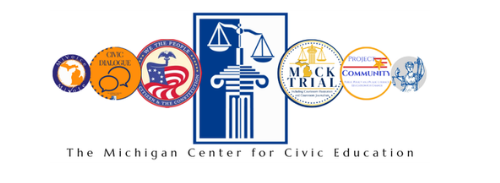This lesson plan was developed to help schools meet the Constitution Day education requirement. Students examine the role of the people in shaping the U.S. Constitution and the ratification process. The lesson closes with an opportunity for students to sign the Constitution, if they choose, and to discuss what it means to sign or not sign.
Civics Lessons
To Sign or Not to Sign: The Ultimate Constitution Day Lesson Plan
The Jury System
In this lesson, students identify pros and cons of jury trials and judge-only trials, plus develop and respond to questions that might help to ensure the selection of a fair and unbiased jury.
John Marshall, Marbury v. Madison, and Judicial Review—How the Court Became Supreme
In this lesson, students will learn, the role of the Supreme Court in interpreting the Constitution, the significance of Marbury v. Madison, the concept of judicial review and how Marbury v. Madison solidified it, and the relationship between the Supreme Court and laws passed by Congress and state legislatures
Juvenile Justice
Deliberating in Democracy lesson which gets students to deliberate the question-Should violent juvenile offenders be punished as adults?
Becoming a Voter
In this lesson, students apply what they learn about their state’s requirements for registering to vote. Students learn when and how to register, how to complete a voter registration form, and when and how to re-register.
Mindwalk: The Law is Everywhere
Students learn the Importance and Reason for Rules and Laws
Voting and the Constitution
Students will learn about the Constitution’s many provisions for voting, including how votes affect the makeup of the government and its branches. The lesson and lesson extensions will have students engage in activities and participate in discussions about how officials are chosen in the three branches of government and how the election process includes the Electoral College.
Cyberbullying
Deliberating in Democracy Lesson which gets students to deliberate whether schools should punish students for off campus cyber bullying
Participating in the Jury System
Students participate in activities and discussions about the relationship of a democratic society to its legal institutions, and the issues of fairness and equality under the law and legal system. They learn how constitutional amendments such as the Fourteenth Amendment influence lawsuits, and they will apply concepts within the Bill of Rights to jury trials. Students conduct research to compare the U.S. jury trial system to trial systems in other countries.
People in the Courtroom
In this lesson, students analyze a photograph of a trial. They identify the people in the courtroom, learn about the roles that they play in the legal process, and discuss how each is essential to ensuring access to justice.

